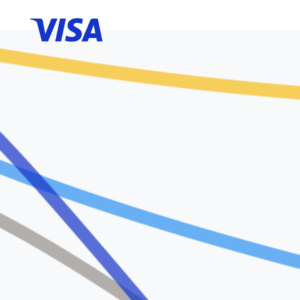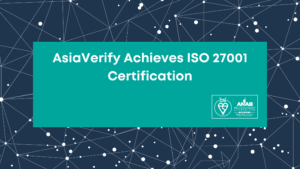Discover how open source data helps verify identities and flag risks in KYC checks across Asia

Introduction
In the financial world, the term “Know Your Customer” or KYC is more than just a buzzword; it’s a foundational pillar of financial crime prevention. At its core, KYC serves as the first line of defence, acting as a filter that prevents bad actors from entering the financial system. By ensuring that firms have a comprehensive understanding of their customers, both individuals and businesses, KYC investigations play a pivotal role in identifying and mitigating potential risks. These investigations typically involve a thorough examination of a customer’s identity, background, financial activities, and KYB service data to assess their legitimacy and risk profile.
As businesses expand their horizons and tap into the vast opportunities presented by the Asian markets, the significance of KYC investigations becomes even more pronounced. The Asian landscape, with its myriad of cultures, languages, and regulations, demands a robust and comprehensive approach to KYC. And at the heart of this approach lies data – the more accurate and diverse, the better.
Demystifying Open Source Data
For some, the term “open source data” might evoke images of vast, unregulated information of questionable credibility. However, this is a misconception. Open source data, especially when sourced from reputable institutions, is often authoritative, reliable, and incredibly valuable. These sources offer a goldmine of information, critical for KYC investigations.
To the well-informed, open source data might seem like a dream come true – a wealth of relevant, credible information readily available at no direct cost. But harnessing its full potential isn’t as straightforward as it might seem. The Asian market, with its diverse jurisdictions, presents a unique set of challenges when it comes to sourcing, translating, and structuring open source data. For those unfamiliar with the intricacies of open source intelligence in Asia, the true power of this data might remain just out of reach.
However, this blog aims to change that. We’ll not only highlight the key types of open source data in Asia and their use cases in customer onboarding, but also the nuances behind successful and scalable usage of this data. By the end, you’ll not only appreciate the untapped potential of open source data but also understand how to leverage it effectively and efficiently.
Key Open Sources in Asia
The range and reliability of open sources varies across each Asian jurisdiction. However, there are several common sources that are invaluable for KYC investigations. This section offers some examples and details their contribution to KYC investigations.
- Government Registries: Countries like China maintain comprehensive registries that provide detailed information about businesses, their ownership structures, and financial dealings.
- Non-Government Public Databases: Some Asian countries have databases that track business transactions, mergers, acquisitions, and other significant events.
- Local News Outlets: While not ‘data’ in the traditional sense, local news sources can provide insights into a company’ reputation, its dealings, and any potential controversies.
- Industry-specific Repositories: Depending on the sector, there are repositories that offer insights into a company’ operations. For instance, stock exchange commissions can provide data on a company’ financial health and major stakeholders.
The data from these sources can solve several challenges:
- Gathering Basic Corporate Details: Obtain essential information about a company, such as its registration date, business type, operational status, and key personnel. This foundational data forms the bedrock of any KYC investigation, ensuring that the company’ basic credentials are verified before delving deeper into more intricate details.
- Understanding Ownership Structures: Delve deep into the intricate web of company ownership, identifying primary stakeholders and potential conflicts of interest.
- Identifying UBOs: Ensure compliance by pinpointing the ultimate beneficial owners, even in complex corporate structures.
- Tracking Ownership Changes: Stay updated with real-time data on mergers, acquisitions, and other significant shifts in company ownership.
- Mapping Relationships: Understand the associations between individuals and companies, identifying potential risks and alliances.
On the whole, these sources serve to enhance KYC Checks, adding layers of assurance and detail to standard KYC checks, ensuring a comprehensive understanding of potential clients or partners.
Check out our webinar on Open Source Intelligence on Chinese Companies without Prior Language Knowledge, brought to you by i-intelligence and AsiaVerify.
The Challenges of Integrating Open Sources Into Your KYC Investigations

Open sources, while offering a wealth of information to enhance the KYC process, come with their own set of challenges. These challenges, if not addressed, can hinder the effective integration of open source data into KYC investigations:
- Technological Challenges
The demand for real-time approval for financial products and services necessitates a seamless and swift onboarding process. Integrating open source data into this process requires robust technological mechanisms to query, extract, and process the data efficiently. The absence of standard protocols or consumption strategies for open sources means each source demands its own unique extraction process. Technologies like web scraping and robotic process automation (RPA) are commonly employed, but they come with their own set of complexities. - Source Reliability
While open source data is a cost-effective resource, its accessibility and reliability can vary. It’ crucial to discern which open sources are the most trustworthy across different Asian jurisdictions. For instance, while some government registries in Asia are comprehensive and up-to-date, others might not be as reliable or current. - Independence and Quality
It’ essential to ensure that the open sources are constructed by impartial entities, free from third-party interests. The quality of the data is equally vital; the information should be accurate and devoid of errors that could lead to misinterpretations. - Availability Concerns
Given that these sources are external and dependent on third parties, continuous 24/7 availability can’t always be guaranteed. Relying solely on a single open source can be risky, especially if that source experiences downtime or other issues. - Data Protection and Compliance
Different Asian countries have their own regulations regarding data processing and protection. For instance, in Singapore, the Personal Data Protection Act (PDPA) sets out the rules governing the collection, use, disclosure, and care of personal data. When leveraging open data sources, it’ crucial to obtain the necessary approvals and ensure compliance with the data protection regulations of the specific country.
The AsiaVerify Advantage in Harnessing Open-Source Data
In the intricate world of KYC investigations, especially within the diverse Asian landscape, AsiaVerify emerges as a trusted ally for businesses. Its unparalleled expertise in understanding and navigating the complexities of the region positions it as a leader in harnessing the potential of open source data.
AsiaVerify knows which open sources are available in each region, where to find them, how to access them and, with a range of innovative features, how to transform the data into actionable insights within KYC investigations.
Here’s how AsiaVerify stands out:
- Precision in Data Handling: Among AsiaVerify’ core strengths is its capability to meticulously translate, structure, and present data in an actionable format. This ensures that businesses, even those unfamiliar with the nuances of Asian languages and contexts, can derive meaningful insights and make informed decisions with the help of open sources.
- Direct Access to Authoritative Sources: By establishing direct connections to authoritative open sources, AsiaVerify guarantees that the data businesses receive is both accurate and up-to-date. This direct access eliminates intermediaries, ensuring data integrity and timeliness.
- Proprietary UBO Check: Beyond mere data collection, AsiaVerify’ unique UBO algorithm offers businesses a visual representation of intricate ownership structures and relationships. This visualisation aids in comprehending the often complex corporate hierarchies prevalent in Asia that are uncovered through open sources.
In essence, AsiaVerify is not just a tool but a strategic partner, ensuring businesses can leverage the power of open source data to its fullest, driving success in the vibrant Asian landscape.
Conclusion
Asia, with its vast potential and opportunities, beckons businesses from around the world. However, to truly unlock this potential, businesses need the right tools and data. Carefully selected open source data forms a crucial part of the solution. With trusted data from authoritative sources, businesses are well-equipped to seize the opportunities that Asia offers, ensuring compliance, mitigating risks, and building lasting partnerships. And with AsiaVerify as a partner, businesses can be assured of the reliability, comprehensiveness, and timeliness of this data.
If your company wants to operate with confidence and transparency in international markets, it is essential to implement a solid KYC process. If you want to know more contact us today.
Have questions or need tailored advice? Our experts are here to help with compliance, data, or partnership needs.
Produced by AsiaVerify in partnership with RegTech Associates








